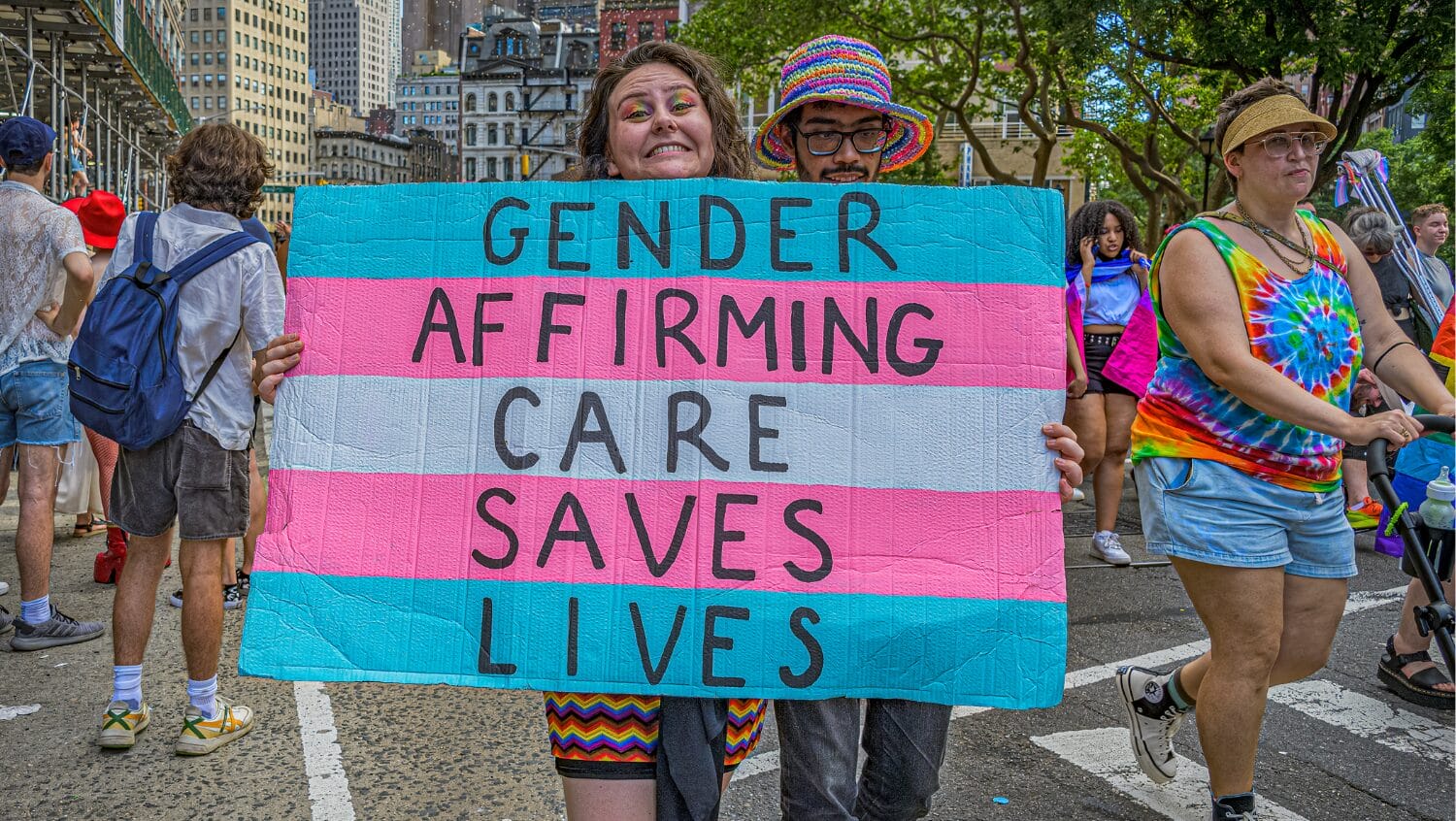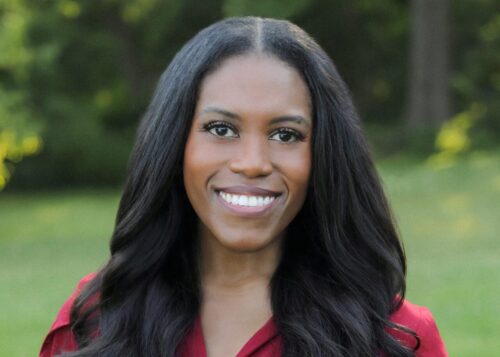
Erik McGregor, Getty Images
BMC’s GenderCare Center is developing and disseminating internal education and programming to train patient-facing staff on how to best care for and affirm queer, trans, and gender diverse people.
There are more out queer people than ever in the U.S. One survey estimates that 13.9 million people identify as queer, and that number keeps growing. Though there is more queer representation in the media, government, and in our own communities, LGBTQIA+ people still struggle to fit in and access services they need to live full, vibrant, and healthy lives. This can be especially true in healthcare.
Healthcare institutions themselves play a critical role in fostering welcome and inviting spaces for queer people. As many as 1 in 3 LGBTQIA+ adults have reported feeling as if they’d been treated unfairly by a healthcare provider. But, when people in the LGBTQIA+ community feel like they can be their full selves with their care provider, they are much more likely to engage with and maintain care.
Boston Medical Center (BMC) is home to the GenderCare Center, which seeks to provide gender-affirming and accessible care for anyone who needs it. The Center offers gender-affirming surgeries, voice therapy, hormone therapy, primary care, and other essential services to affirm one’s identity and establish a regular care provider.
“We want people to see that gender-affirming care goes beyond just medical and surgical services,” said GenderCare Center patient navigator Jordan Bensley in a 2023 article about the GenderCare Center’s name change, “…it is about providing access to care that tries to dismantle political and socio-economic barriers.”
Gender-affirming care: A recent history
When compared to heterosexual, cisgender people, LGBTQIA+ people face undue burdens when it comes to healthcare access, often being denied affirming care when they need it. This is in large part due to waves of new legislation designed to ban gender-affirming care. Last year saw a record number of anti-LGBTQIA laws proposed in several state legislatures across the country, including 15 laws that specifically sought to ban gender-affirming care among young people. The ripple effects of this type of discrimination can lead queer people to forego necessary preventative healthcare and can lead to more complex health conditions down the line.
As important as it is to turn a keen eye to the obstacles that queer people face for healthcare, there have been wins. In light of the new slate of discriminatory legislation several states, including Massachusetts, have passed legislation to declare themselves “refuge states” for gender diverse, transgender, and queer people who wish to seek gender-affirming care or a safe place to be themselves. Arkansas also had a historic victory when a federal judge overturned bans on gender-affirming care for queer, gender diverse, and transgender youth. And more cities and towns have been joining the fight to create more inclusive and non-discriminatory environments for queer, trans, and gender diverse people.
Gender-affirming care is everyone’s job
To enhance gender-affirming care for patients across the hospital and beyond, BMC’s GenderCare Center’s is increasing training and educational opportunities, which help provide critical information about gender diverse and queer people directly to care providers. The Center has two prongs of educational programming: training programs targeted at patient-facing individuals within BMC and trainings programs for those outside of BMC.
Every person who works at the GenderCare Center is involved in building, developing, and providing training in some capacity, but Meg McGrath, LICSW, spearheads much of it. McGrath joined the hospital in November 2022 and has focused on fortifying internal educational programming around providing affirming care for queer, transgender, and gender diverse people. Though it’s only early June, McGrath has already completed more than 30 internal trainings at BMC this year — almost all of them requested by the departments themselves.
“The appetite is definitely there,” McGrath says. “People are hungry for information about how to best care for this population.”
Here’s how it works: Departments will recognize a need for more education around working with gender diverse and transgender people and will reach out to the GenderCare Center for more resources. The trainings themselves are virtual, interactive meetings. McGrath and GenderCare Center program manager Micha Martin cover topics ranging from getting comfortable with using gender-neutral language, the different definitions of gender-affirming care, the impacts of trauma on transgender and gender diverse populations, and how to interact with transgender and gender diverse people in affirming ways. Staff at the trainings are encouraged to ask questions and are given pre- and post-training surveys to see how they resonated.
“I am strongly of the opinion that education helps combat ignorance. I’m incredibly passionate about helping bridge the gap for folks who are willing to engage and willing to learn to provide gender-affirming care to some of the most marginalized people in our society,” says McGrath, “Trans and gender-diverse people are just people. These trainings are designed to help those who interact with patients see what they can do to uphold and affirm queer people’s existence.”
Bridging critical gaps in care for trans, queer, and gender diverse people
McGrath points to a few internal areas for which it has been essential and heartening to provide training: Public Safety and Patient Transport teams.
With Public Safety, McGrath has established a critical relationship with their training lieutenant, and all new hires train with McGrath before they begin their first shift at BMC. Patient transport attendants, who maneuver patients from one part of the hospital to the other, have been involved in trainings since the GenderCare Center began offering them. McGrath sees training these two different cohorts as a critical step in bridging some gaps in the patient experience.
“Both of these entities interact with patients at various points in their journey — whether it’s at the front desk when they’re checking in, or when they’re in a very vulnerable state being brought to an operating room,” they say. “It can make all the difference to have staff who are aware of gender diversity and use affirming language in such situations.”
McGrath acknowledges that these kinds of changes may seem small, but adds this:
“Queer, trans, and gender-diverse people have always existed and it’s important that, as a healthcare system, we evolve to meet their needs. I’m frequently educating people who regularly interact with patients about how best to affirm those patients. Change can be slow, but it’s worth it knowing that we’re a part of fostering the kind environment where queer, trans, and gender diverse people feel comfortable seeking care.”


